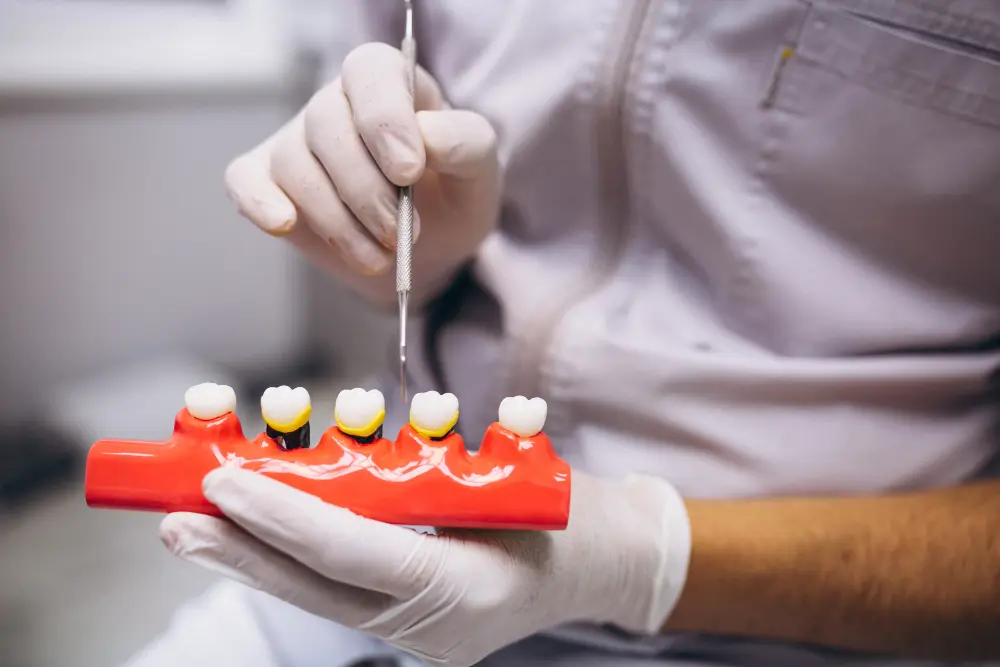A dental crown, also known as a dental cap, is a tooth-shaped covering that encases a damaged or weakened tooth. It acts like a protective helmet, restoring the tooth’s shape, size, strength, and appearance. Crowns are typically cemented onto the visible portion of the tooth, above the gumline.
Why You Might Need a Dental Crown
There are several reasons why a dentist might recommend a dental crown:
- Severe Tooth Decay: If a cavity is large or deep, a filling may not be enough to restore the tooth’s integrity. A crown provides the necessary support to protect the tooth and prevent further problems.
- Cracked or Broken Tooth: A crack or break can compromise the tooth’s structure and increase the risk of further damage or infection. A crown can hold the fractured pieces together and prevent additional breakage.
- Worn-Down Teeth: Grinding, chronic acid exposure, or even normal wear and tear can wear down teeth over time. A crown can rebuild the tooth’s proper size and shape, restoring its functionality.
- Root Canal Treatment: After a root canal, the tooth becomes more brittle and susceptible to breaking. A crown protects the weakened tooth and prevents future issues.
- Cosmetic Concerns: Crowns can improve the appearance of discolored, misshapen, or misaligned teeth, enhancing your smile.
Types of Dental Crowns
Dental crowns come in a variety of materials, each with its own advantages and disadvantages to consider when choosing the best option for your needs:
- Metal Crowns: These are very durable and long-lasting, but they may not be the most aesthetically pleasing choice due to their metal color.
- Porcelain-Fused-to-Metal Crowns: These crowns offer a good balance of strength and aesthetics. A metal زیرساخت (zīr jiàn) or inner structure provides durability, while a porcelain exterior provides a natural-looking tooth.
- All-Resin Crowns: These crowns are a more affordable option, but they are not as strong as other types and may wear down more quickly over time.
- All-Ceramic Crowns: These crowns offer the most natural appearance, mimicking the look of a real tooth. However, they may not be quite as strong as some other crown materials.
The Dental Crown Procedure
Getting a dental crown typically involves two dental visits. During the first visit, your dentist will examine your tooth, take X-rays, and prepare the tooth for the crown. This may involve removing some tooth enamel to create space for the crown to fit properly. A temporary crown will then be placed to protect your tooth while the permanent crown is being crafted in a dental lab.
At the second visit, your dentist will check the fit and color of the permanent crown and then cement it into place.
Caring for Your Dental Crown
With proper care, dental crowns can last for many years. Brushing and flossing twice a day is essential for maintaining good oral hygiene and protecting your crown. Regular dental checkups and cleanings are also important to ensure the ongoing health of your teeth and gums. Avoid chewing on hard objects, as this can damage the crown. If you have any questions about dental crowns or if you experience any problems with your crown, be sure to talk to your dentist.







